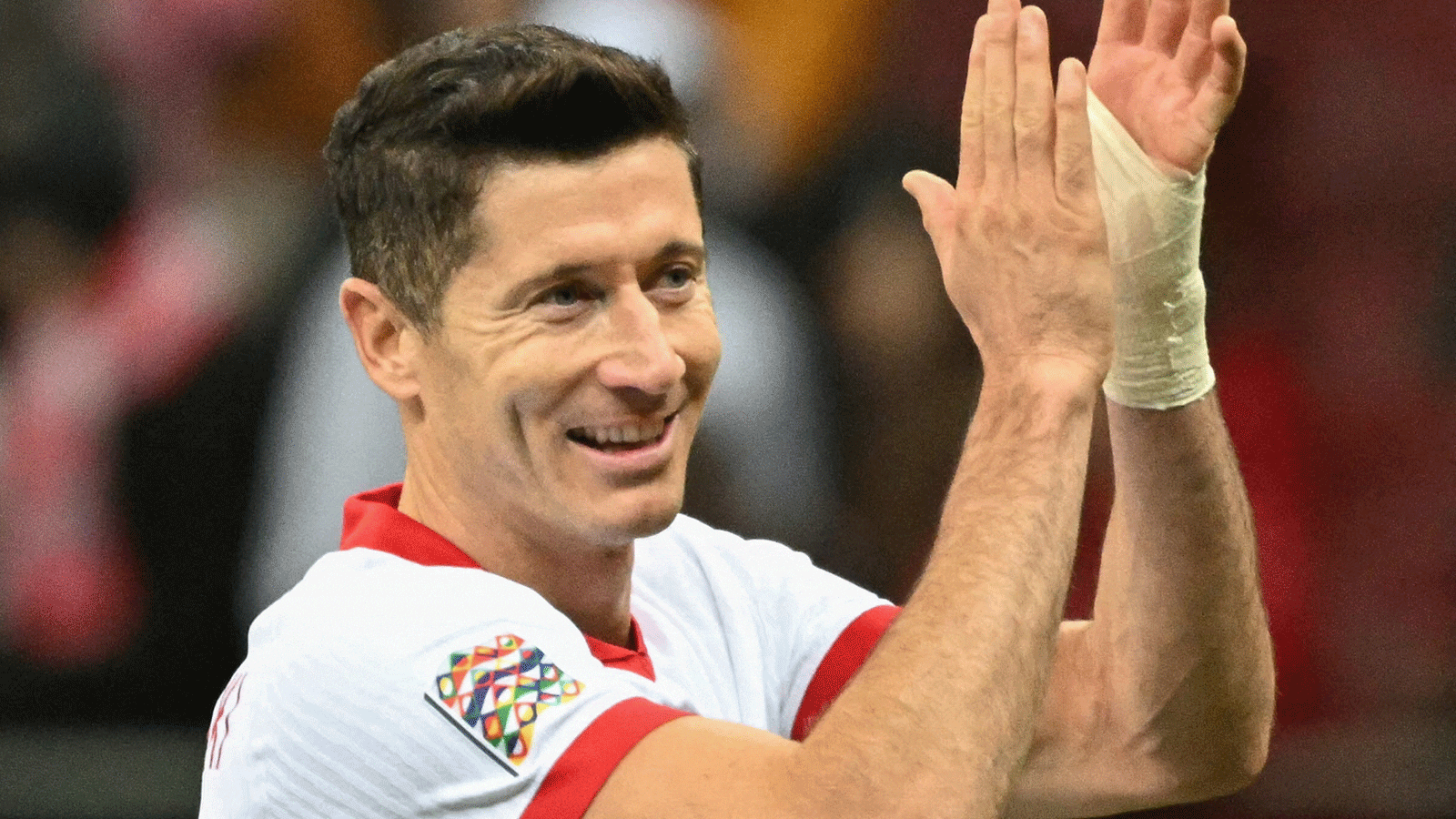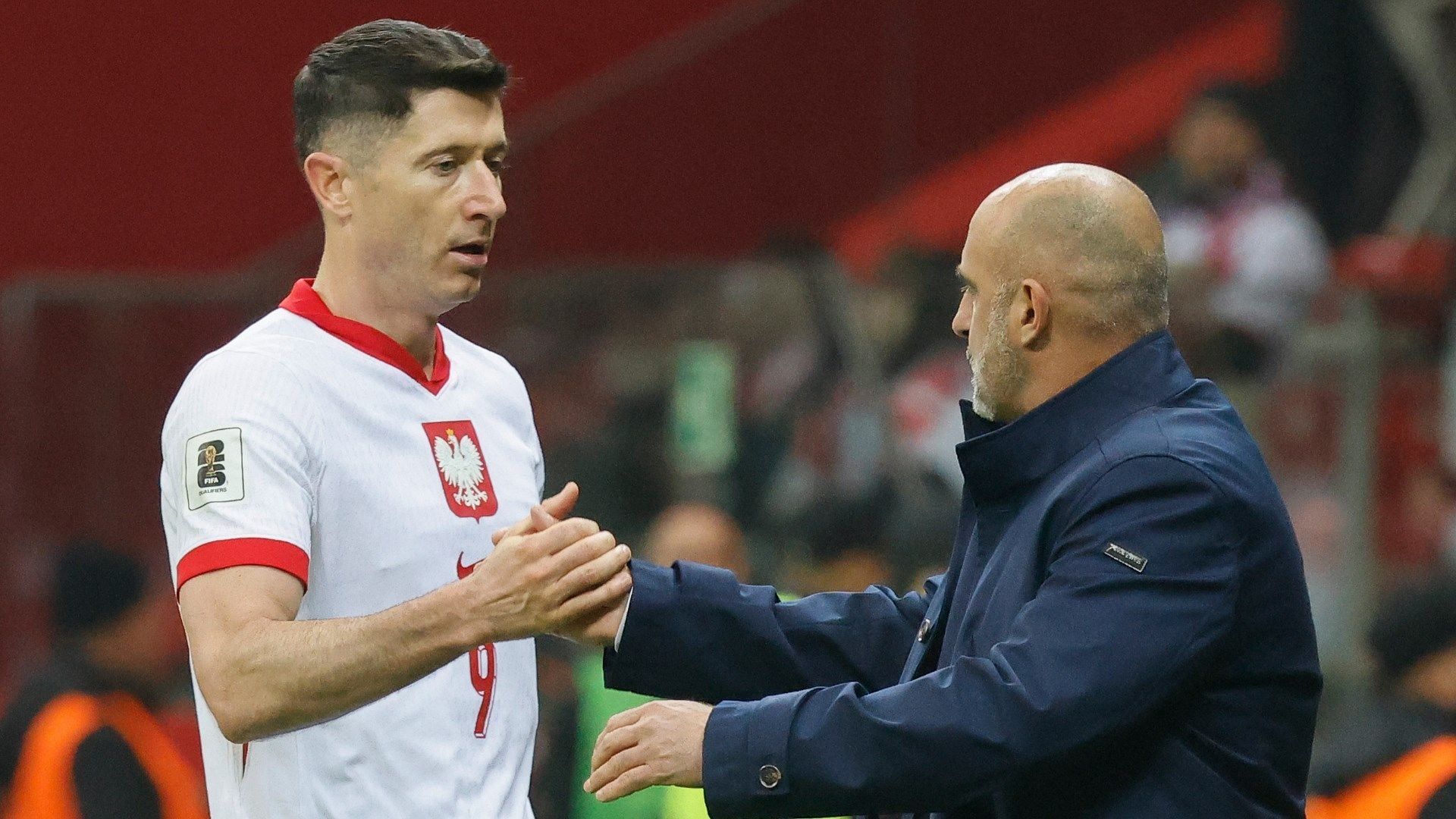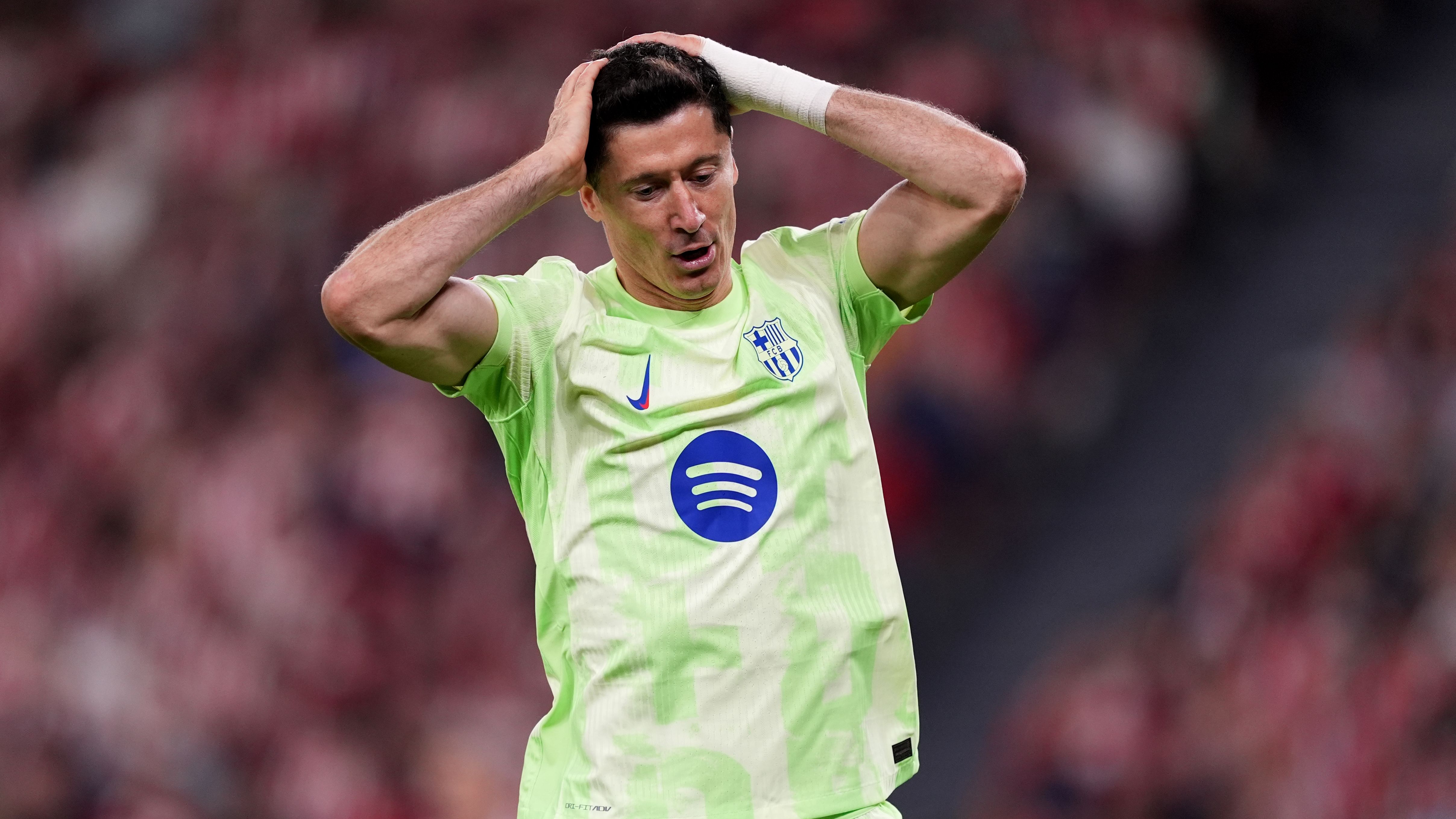Lewandowski’s Triumphant Return to Polish Football: A Fresh Start Under New Leadership
In a move that has ignited excitement among fans, Robert Lewandowski, the renowned Barcelona forward, has opted to rejoin the Polish national team, signaling a potential turning point for the squad. This decision follows recent shifts in coaching staff and comes amid discussions of leadership and commitment in international play.
Key Highlights of Lewandowski’s Comeback
- Lewandowski affirms his recommitment to Poland
- Jan Urban steps in as the successor to Michał Probierz
- No stipulations imposed, including matters related to leadership roles



The Background of the Striker’s Withdrawal and Reentry
Reports from Goal.pl indicate that the celebrated athlete has chosen to resume his role with Poland’s national side after Jan Urban assumed the head coaching position. Previously, Lewandowski had withdrawn from international matches due to a disagreement with the former coach, Michał Probierz, who made the unexpected choice to remove him from the captaincy ahead of Poland’s encounter with Finland in a World Cup qualifier. Now, with Probierz’s departure, Lewandowski is fully prepared to engage with the updated team setup, free of any demands, even if his leadership status remains undecided.
Resolving the Recent Turmoil
This choice by Lewandowski effectively closes a brief yet widely noted period of discord that raised doubts about his ongoing involvement at the international level. Probierz’s impromptu selection of Piotr Zielinski as captain prompted the 36-year-old player to step away voluntarily from the team. The situation reached its resolution with Probierz’s exit, allowing Urban to reach out directly. Urban has openly shared his enthusiasm for reintegrating Lewandowski, and sources confirm the forward’s prompt return to action.
Lewandowski’s Impressive Legacy
The Polish icon boasts 158 appearances and 85 goals on the international stage, setting benchmarks that remain unmatched in his country’s history.
Looking Ahead: Poland’s Upcoming Challenges
As Poland prepares for their next World Cup qualifying fixtures in September, expectations are high that Lewandowski will be included in the selection. He continues to be a vital presence for both his club, Barcelona, and his homeland, with strong chances of securing his place in the lineup under Urban’s guidance. The question of whether he will once again take on the captaincy is still open, but it appears that both the management and the player are focused on moving forward without lingering disputes.
Robert Lewandowski’s Journey with the Poland National Team
Background on the Captaincy Dispute
Robert Lewandowski, the Polish football icon known for his prolific goal-scoring record, has faced significant scrutiny over his role with the Poland national team. The captaincy dispute stemmed from internal team dynamics and performance pressures, particularly after Poland’s underwhelming results in major tournaments like the UEFA Euro 2024. Lewandowski, who had captained the team since 2014, found himself at the center of media speculation when reports emerged about potential leadership changes. This unrest highlighted broader issues in Polish football, including player-coach relations and the demands of international play.
Key factors contributing to the dispute included Lewandowski’s age-he turned 37 in August 2025-and concerns about his ability to lead in high-stakes matches. Critics argued that newer talents, like rising stars from the Polish league, deserved a chance at the helm. This period marked a pivotal moment for Lewandowski’s international career, as he balanced his club commitments with FC Barcelona and his passion for representing Poland.
The New Coach’s Invitation and Its Significance
With the appointment of a new coach in early 2025, the Poland national team aimed to inject fresh energy into its lineup. The new coach’s invitation to Lewandowski signaled a potential olive branch, emphasizing reconciliation and strategic rebuilding. This move was crucial, as it addressed the captaincy dispute head-on, allowing Lewandowski to reassess his future amid calls for retirement.
The invitation wasn’t just a formality; it represented a shift toward inclusivity in team selection. Football experts noted that integrating experienced players like Lewandowski with emerging talents could boost Poland’s chances in upcoming qualifiers for the 2026 FIFA World Cup. Lewandowski’s inclusion was seen as a masterstroke, leveraging his expertise in high-pressure situations to mentor younger players and maintain team morale.
- Benefits of the invitation: Boosts team unity by resolving past conflicts, provides leadership stability, and enhances Poland’s international competitiveness.
- Challenges addressed: Overcomes age-related doubts by focusing on Lewandowski’s fitness and mental sharpness, as evidenced by his continued success in La Liga.
- Broader implications: This development could inspire other veteran athletes facing similar career crossroads, showing that experience still holds value in modern football.
Lewandowski’s Official Clarification
In a highly anticipated press conference, Robert Lewandowski finally addressed his Poland national team future, offering clarity on his intentions post-invitation. He emphasized his unwavering commitment to Polish football, stating, “I’ve always put the national team first, and this invitation reaffirms my role in its success.” This clarification came after months of uncertainty, where rumors of his exit had dominated sports headlines.
Lewandowski detailed his discussions with the new coach, highlighting how they focused on mutual respect and shared goals. He clarified that stepping down from the captaincy was a mutual decision, not a forced one, allowing him to contribute without the full burden of leadership. Fans and analysts praised the star striker for his transparency, which helped dispel myths about his dedication.
Key Statements from Lewandowski
- On his future involvement: Lewandowski confirmed his availability for upcoming matches, saying, “I’m not ready to walk away yet; there’s still fight left in me for Poland.”
- Addressing the dispute: He reflected on the captaincy issue, noting, “It was about evolving the team, and I’m fully supportive of that transition.”
- Personal motivations: Lewandowski mentioned how family and personal well-being factored into his decision, adding a human element to his professional life.
This response from Lewandowski not only quelled speculation but also positioned him as a role model for athletes navigating career transitions. Sports media outlets covered the event extensively, underscoring its impact on Poland’s football landscape.
Impact on Poland’s International Performance
The resolution of Lewandowski’s situation has already begun to influence Poland’s national team dynamics, particularly in training camps and friendly matches leading up to major events. With Lewandowski’s clarification, the team can now focus on strategic preparations, blending his goal-scoring prowess with the agility of younger players.
Experts predict that this stability could lead to improved performances in the UEFA Nations League and World Cup qualifiers. Lewandowski’s experience in high-stakes games, such as his record-breaking 98 goals for Poland, remains invaluable. Teams often struggle with leadership voids, but Poland’s approach-retaining a legend while promoting fresh talent-sets a positive precedent.
- Tactical advantages: Lewandowski’s presence as a forward allows for versatile formations, aiding in both offensive and defensive strategies.
- Fan engagement: His decision has galvanized supporters, with ticket sales for national team games surging due to renewed interest.
- Long-term legacy: This episode could define Lewandowski’s post-retirement influence, potentially leading to coaching or ambassador roles within Polish football.
How This Shapes Lewandowski’s Legacy in Football
Discussing Lewandowski’s legacy involves examining his contributions beyond the pitch, including his advocacy for youth development in Poland. His clarification has opened doors for dialogues on mental health in sports, a topic he’s increasingly vocal about. By navigating the captaincy dispute gracefully, Lewandowski reinforces his status as one of the greatest strikers, with stats like 468 club goals and 98 for Poland speaking volumes.
Statistical Insights and Fan Reactions
- Performance stats: In 2025, Lewandowski maintained his form, scoring 25 goals for Barcelona, which directly correlated to his national team readiness.
- Social media buzz: Platforms like Twitter saw hashtags like #LewyForPoland trending, with fans sharing supportive messages and memes.
- Expert opinions: Football analysts from ESPN and BBC Sports highlighted how his decision could inspire similar comebacks in international football.
This ongoing chapter in Lewandowski’s career exemplifies the evolving nature of professional sports, where personal disputes lead to growth and renewal. As Poland gears up for future competitions, the world watches how this saga unfolds.









